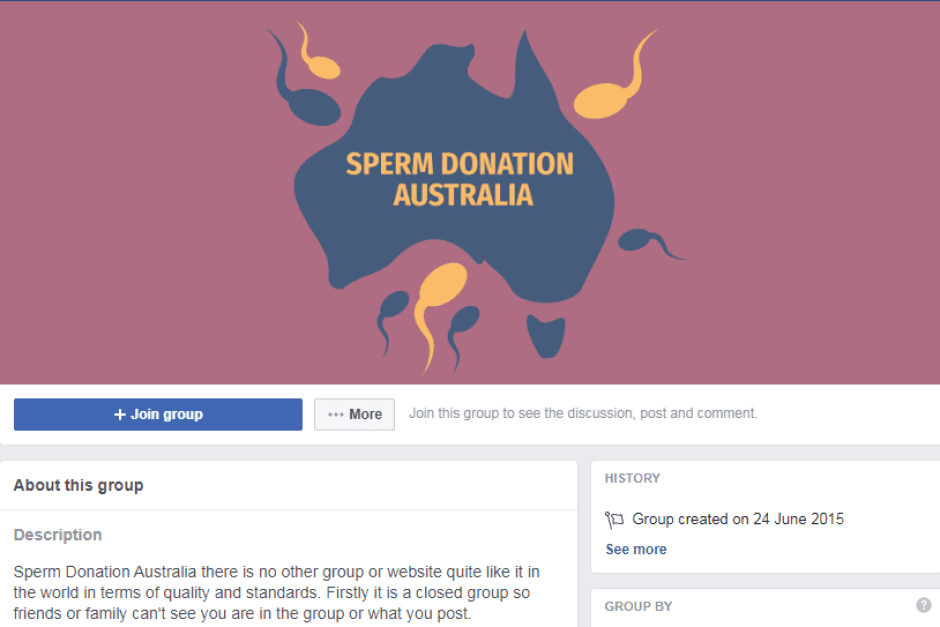Commencing 1 December 2019, Transport NSW has introduced mobile phone detection cameras across the State. Unlike the pre-existing speed cameras, drivers will not be warned of their presence on the roads and most of their locations are unknown to the public.
How do they work?
The new technology utilises an overhead camera to take a photo of the driver seat, after which an artificial intelligence program automatically analyses the image to check if a driver is using their phone. It is then checked by an authorised adjudicator and penalty notice is issued to drivers caught using their mobile phones. The system supposedly works at night, in all weather conditions, and even in the driver is at speeds of 300km/h.
What constitutes as legal mobile phone use?
- Drivers are ONLY permitted to do use the following functions if the mobile phone is secured to the vehicle through a cradle, or can be operated without touching the phone:
- Make or receive audio call;
- Use music or audio functions;
- Use a driver’s aid such as GPS.
These functions are not available for drivers who hold a Learner of Provisional License.
- Accessing a Digital Driver’s License is permitted only after a police officer has asked you to do so.
- Using a Wallet Function such as making a transaction is stationary or off the road in areas like a car park, driveway or drive thru.
- If you want to access any other function the car must be parked.
What constitutes as illegal mobile phone use?
Use of the following functions are prohibited, unless the car is parked.
- Video calls;
- Text messaging;
- Emailing;
- Using social media;
- Web browsing;
- Photography functions
Restricted licences holders including learner, P1 and P2 drivers and riders are not permitted to use their phone at all while driving or riding. This includes use of hands-free and Bluetooth functions.
What penalties could be incurred as a result of illegal mobile phone use?
Warning letters relating to camera-detected offences will be issued for the first three months. Following this period, the penalty for offending drivers is five demerit points and a $344 fine ($457 in a school zone). The penalty increases to 10 demerit points during double demerit periods.
A recipient of the penalty can request a review of on the Revenue NSW website.
With the holiday period approaching, NSW Police are warning drivers not to use their mobile phones whilst driving. To avoid temptation, keep your phone in your bag or glove box.
If you would like to seek further information in relation to the above, or need help with lodging a request for review of your penalty notice, please do not hesitate to contact our helpful team at Freedman & Gopalan Solicitors on 02 8917 8700, and we will be happy to assist you.
With the development of technology, society has benefited from an improved access to information, advancements in medicine and an ability to communicate on a global scale.
Technology has also caused the area of family law to adapt and grow with societal changes. The legalisation of same sex marriages and abortion are among the few reforms which have occurred, largely because of an expression of changing societal opinions throughout social media.
The affects of technology can also be seen in the area of reproduction. Traditionally, couples who were unable to conceive children were faced with the impossibility of starting a family. Whilst there is the avenue of IVF, couples may be deterred from these treatments as they can sometimes be invasive, and they are typically expensive.
Alternatively, prospective parents, single women or same sex couples could approach a sperm clinic in order to make their dreams of parenthood a reality. However, there is a strict process involved and the supply of sperm worldwide to donor organisations is limited.
With social media playing a major role in today’s society, these couples are now turning to media platforms in order to seek suitable persons to donate sperm.
Facebook group, ‘Sperm Donation Australia’ provides a platform for men to provide sperm donations, and for other couples to search for sperm donors. The group currently has more than 5,800 members and offers an online gallery of donors for prospective parents to browse through. Aiming to protect the privacy of both its donors and its prospective parents, the group is closed and access to it is subject to the group owners approval.
Whilst this is a huge development, there are legal issues to consider. Couples who choose to use this avenue are warned that there is no legal binding agreement in place. In this sense, there is the potential for a dispute to arise surrounding the legal parentage of the resulting child.
In a decision handed down earlier this year, the High Court has expanded the definition of a “legal parent” to include a sperm donor. Where a sperm donor can demonstrate that they have an ongoing involvement and relationship with the child, then the law will recognise them as having legal parentage over that child. In the case of anonymous sperm donors, who have not seen or had a relationship with the biological child, then the law will not consider them as being their legal parent.
Accordingly, where a sperm donor does not wish to have any parental responsibility over a child, they may now find themselves exposed to the full gamut of responsibility, including child support and inheritance. Likewise, single mothers who do not wish to share parental responsibility with a sperm donor may be faced with parentage orders.
It is therefore in the best interests of all parties involved that a Sperm Donor Agreement be drafted and executed prior to entering into any donor-acceptance arrangements. Although it may not be legally binding, by clearly setting out their intentions in the agreement, both parties will be protected.
Are you thinking of undergoing the sperm donor process? Contact us at Freedman and Gopalan Solicitors to obtain general advice in relation to your rights and that of a donor.
In the wake of the devastating bushfires in NSW, Australians are forced to ask themselves, “is my house and contents protected in the event of a disaster?”
If you have insurance, the damages and losses resulting from bushfires may be recoverable. However, this is dependant on what type of insurance you have, and the extent of that cover.
What type of insurance should I have?
When considering what type of insurance to use, you should consider what it is that you are trying to protect. For example, Home Building Insurance covers you for any destruction or damage to a building, whilst Home Contents Insurance covers any damage to personal belongings and household possessions.
If you think you may have insurance but cannot remember which company it is with, you can ring the Insurance Council of Australia on 1300 728 228. In the event of a large-scale disaster, there is usually also a dedicated Catastrophe Hotline created to assist policyholders if they are uncertain of their insurance details or have general inquiries about the claims process. For those affected by the NSW Bushfires, you can access the hotline on 1800 734 621.
Does my insurance policy cover me?
Insurance policies vary in wording from policy to policy as to the types of risks or insured events they will cover, and what events or losses are excluded. For example, some policies may not insure properties that have been damaged where a person or entity is found to be responsible for starting the fire which lead to the bushfire. It is important that you read your policy and understand what you are covered for. This will ensure that you get all of the benefits you are entitled to.
Many policies also impose a general obligation on the policy holder to take reasonable precautionary measures to prevent loss. For example, clearing your gutters to reduce the risk of leaves in the gutter catching fire from embers carried by the wind.
Things to check for in your policy.
In relation to the extent of bushfire cover, some insurance policies include the following limitations:
- Have an embargo or time delay after you’ve entered into the insurance contact for the policy to take effect. Generally, bushfires within the first 48 or 72 hours of you first taking out the policy are not covered;
- Exclude cover for any damage caused by scorching, burn marks or melting are not covered where there has been no flame, or where there was no burning building within 10 metres of your home; or
- Limit cover where you have not taken adequate precautions to prevent damage or loss.
What should I do to ensure I am covered?
If your property and contents are insured, your insurer may still refuse to pay any claim made. In order to ensure that this does not happen to you, follow these steps:
- Contact your insurers and notify them about your claim.
- Take photographs of any damaged items and make an inventory of your losses.
- Do not dispose of any items unless hazardous. Where you do dispose of an asset, document everything and try to get the insurer’s consent.
- Take reasonable steps to minimise your loss, such as, securing your contents by erecting a temporary shelter over them. Try and document this with photos, invoices and any other evidence.
- Seek independent legal advice when entering into an insurance policy in order to ensure that you are protected by your policy.
If you would like to seek further information in relation to the above, or need help with an insurance claim, please do not hesitate to contact our helpful team at Freedman & Gopalan Solicitors, and we will be happy to assist you.
Definition
According to the World Health Organisation, the abuse of older people or commonly known as ‘elder abuse’ is defined as:
“a single or repeated act, or lack of appropriate action, occurring within any relationship where there is an expectation of trust, which causes harm or distress to an older person”.
Statistics
The Australian Institute of Family Studies estimate 2 to 14% of older Australians experience elder abuse in any given year.
However, this issue is chronically under-reported due to a lack of understanding and the inability of the victims to seek help in situations of abuse.
What is elder abuse?
The issue of elder abuse will only become more prevalent as Australia’s population ages, and can manifest in a variety of ways: -
- Neglect: where an older person is not having their physical, medical or emotional needs met.
- Physical: being slapped, restrained and over- or under- medicated
- Psychological/ Social Abuse: mental stress involving actions and threats that cause isolation from friends and family, fear of violence, deprivation, powerlessness, feelings of shame, being treated like a child or being denied the right to make decisions
- Financial Abuse: being forced to change a Will, being unduly influenced into making contracts, having belongings sold without permission, money taken improperly through misuse of Enduring Power of Attorney and/or denying an older person access to their own money
- Sexual Abuse: acts where the victim’s consent had not been obtained or through coercion. This also includes non-consensual language/ behaviour including inappropriate touching, assault or even rough or inappropriate cleaning or treatment of genital area
What elder abuse is not.
Elder abuse is not age discrimination, or an estranged relationship with a relative. It is also not a crime committed by a stranger or involve self-neglect or self-maltreatment.
Elder abuse is most often perpetrated by someone the person trusts, such as a family member, carer or worker in a nursing home, and most importantly, is not always malicious. Elder abuse can arise through sheer lack of thought about how your actions and decisions impact the person you are caring for.
Who is at risk?
Older persons are at an increased risk when: -
- Have a disability or poor health
- Are living with mental health issues
- Are in dependent caring relationships, particularly where a carer is experiencing carer burden or stress
- Are isolated and/or without personal support systems
- Have a past history of violence or conflict within the family
- Exhibit particularly difficult and/or inappropriate behaviour, and/or confusion or memory loss
- Any persons from culturally and linguistically diverse (CALF) backgrounds
- Are Aboriginal and Torres Strait Islander people
- Exhibit signs and symptoms of cognitive impairment including dementia
What you should do if you are being exploited or mistreated?
- First and foremost, your safety should be the priority. If you are feeling threatened or unsafe, please call 000 as soon as possible. The authorities can assist you in removing the abusive person from your residence or help you find safer accommodation.
- If you believe that the situation is not yet serious and does not warrant telling the authorities yet, have a safety plan ready to help you be know what to do should an emergency occur.
- Find someone you trust, such as a friend, family member or trained professional, to speak to and share your concerns. This will not help your own mental- wellbeing but also ensure that someone else is aware of your situation.
- Whilst you may feel like you are protecting the person who is mistreating or exploiting you, you have a right to feel comfortable and safe in your own home. Just as you can seek assistance, there are professionals who can also help the person with their own problems and who may not be totally aware of the impact of their behaviour it makes on you.
How can we help you?
When preparing a Will, Power of Attorney or other legal documents, we ensure that the client is competent and has the mental capacity to make an informed decision and can provide us with clear instructions.
Particularly in relation to serious cases of financial abuse, we can also seek assistance from court or tribunal to freeze a bank account, recover stolen money or property or reverse an unfair contract.
If you have would like to seek further information or assistance in relation to the above, please do not hesitate to contact our helpful team at Freedman & Gopalan Solicitors, and we will be happy to assist you in any manner!
The Australian Competition & Consumer Commission (ACCC) is a regulatory body that promotes fair trade in the Australian market to protect and benefit consumers, business and the community.
The ACCC has recently launched court proceedings in the Federal Court of Australia against Google. The ACCC's argument is that Google has been misusing the location data of its users, from at least January 2017, in breach of Australian Consumer Law.
The ACCC Chairperson Rod Sims states that consumers did not have the opportunity to make an 'informed choice' about how Google collects, keeps and uses their highly sensitive and personal information, because Google did not make it clear that both 'Location History' and 'Web & App Activity' settings on the phone had to be switched off if users did not want their location data to be retained. Instead, consumers were likely to have understood that by turning off their Location History setting, Google would stop collecting the Location data. Google also failed to disclose that they may use the data for purposes unrelated to the user's use of Google services, such as advertising and production of statistics about users to be shared with third party advertisers.
"Transparency and inadequate disclosure issues involving digital platforms and consumer data were a major focus of our Digital Platforms Inquiry, and remain one of the ACCC's top priorities." [Rod Sims, ACCC Chair]
The ACCC says this is the first time a regulator anywhere in the world has taken on the global tech giant over the misuse of personal data. The ACCC seeks orders for a penalty and the establishment of a compliance program.
If you have any questions in relation to the above, please do not hesitate to contact the team at Freedman & Gopalan Solicitors on 02 8999 9837 or by filling out the enquiry box.
With Christmas fast-approaching, knock-out deals are everywhere, and one kind of deal has become more popular than ever: bargain flights. Multiple companies are selling both domestic and international flights at record-low prices, especially around Christmas. It almost sounds too good to be true, so the question is, what’s the catch?
There are few important things to take into account when booking these flights. While conditions may vary across airlines, these bargain flights generally have a few things in common:
- One-way flights
While relatively easy to determine once you do a little research, it is useful to note that airlines will commonly advertise one-way flight prices as they obviously appear cheaper. While return flights will still be cheaper than normal during these sales, they are generally double the amount advertised, so don’t be fooled!
- No check-in baggage
A common ‘catch’ with bargain flights is the exclusion of checked baggage. For a short domestic trip, this may not be an issue as most flights still allow the 7kg carry-on luggage. However, for longer international trips, 7kg carry-on and liquid restrictions may significantly hinder your holiday plans. All airlines allow you to purchase checked baggage but this may set you back anywhere between $10-$50 depending on the baggage weight, greatly increasing that $9 flight. Pre-purchasing checked baggage however, is always recommended over purchasing at the airport as airlines tend to charge exorbitant amounts for excess baggage on the day.
- No name changes
Bargain flight deals usually don’t last long and this urgency may encourage you to purchase a few tickets just to have them before deciding later who the passengers will actually be. The ‘catch’ here is that airlines will charge you for any changes you make to passenger details. When you are booking flights, you are generally required to enter all passenger details and future changes can incur costs of around $70.
- No seat selections
When you choose to purchase a bargain flight, you will rarely be given a choice in seating. This means that a group booking may have split seating on the flight. If you are determined to be seated together, airlines allow seat selections, but at a fee ranging from $5-$50.
- No full refunds/cancellations
Finally, bargain flights rarely offer full discounts. Most will charge an admin fee of around $50 to process the refund. For a $9 flight, this would be counterintuitive and it may be better off just to not catch the flight.
For a short fuss-free trip, bargain flights are a great deal and can save you lots of money that could be spent elsewhere on your trip. Any extra requests and changes however, can incur significant costs that mean your bargain flight is a bargain no longer. Thus, the bottom line is to always read the terms and conditions for each airline before booking, and be flexible about your flight experience!
Make sure you are aware of the terms and conditions, as well as your rights when purchasing a bargain flight. Contact Freedman & Gopalan Solicitors on 02 8917 8700 if you wish to know more.
Since the Grenfell Tower fire in 2017, causing 72 deaths and over 70 injuries, the safety of the material cladding buildings around the world has been brought into the spotlight.
Recently, the NSW Government has compiled a list of 444 buildings across NSW that are potentially clad in flammable material. However the Parliament has announced that it will not make this list public after having deemed it a security risk, citing arson and terrorism as its main concerns. To protect the secrecy of the list, the government has lodged a claim of privilege, arguing that the public release could also breach confidentiality, mislead the public and harm the interests of property owners.
The NSW Fire Brigade Employees' Union has criticised the decision to keep the list secret, saying that people who live and work in those buildings should know about the potential risk. In May in year it was revealed that flammable cladding was also used in NSW hospitals, posing a major fire threat to the public.
The Construction, Forestry, Maritime, Mining and Energy Union (CFMMEU) has deemed this part of a wider, Australia-wide 'construction crisis', and has demanded federal intervention. The union argues that state governments lack the skills and infrastructure to properly deal with this issue, and this failure has cost Australia $10 billion in the past decade alone.
The CFMMEU Report estimates that the cost of rectifying apartment defects, including flammable cladding, could be over $6 billion. It is unclear who will bear the cost and the blame for the defects. There is culpability extends from those responsible for proposing flammable cladding, to local councils and governments for approving its use, and building contractors for fitting buildings with these materials.
This is a live issue, as the Union has appealed the privilege of the cladding list. We hope that the government takes some time to ensure the building standards imposed in NSW are adequate and able to protect the community.
Within our society, we rely on the police to maintain public order and safety, to enforce the law and to prevent, detect and investigate criminal activities. We trust the police to carry out their role in accordance with the law and within the limits of their power.
While it is the role of the police to protect the public, it is the public’s role to keep the police accountable. Whether you are dealing with a noise complaint, or being asked for identification, it is imperative that you know your basic rights when dealing with the police.
What to do when police ask for identification?
If you are over the age of 18, you are required to provide the police with your name and address.
If you are under 18, you only need to provide the police with your age. You have the right to ask for a parent or lawyer to be present, in the process of questioning.
It is important to know that the police cannot ‘arbitrarily’ question people. They must have reasonable suspicion of your engagement in something unlawful before they start questioning.
What to do when police ask to search your car?
Where a police officer pulls you over with reasonable suspicion, for example, to inspect the smoke coming out of the back of your car, they can then use that as a reason to search your car. Subsequent to the search, the police can seize any unlawfully held weapons they find in the search and also seize evidence of other offences found.
Do you have to hand over your phone to the police?
Police do not have an automatic right to search your personal property, such as your mobile phone.
Your property can only be searched if:
- You consent to the search
- The police have a search warrant, or
- They are permitted to conduct the search under a law.
The police have the power to stop, detain and search you without a warrant if they reasonably suspect that you are carrying something such as a weapon, illegal drugs or graffiti instruments.
Can I film the police?
You do have the legal right to film police, if it is in a public place, and as long as it does not interfere with the performance of the police officer’s duties.
The police do have the right to stop you from filming if you are obstructing them from carrying out their duties.
If you have been improperly searched or questioned by the police, please do not hesitate to contact the team at Freedman & Gopalan Solicitors on 02 8999 9837, and we will be happy to assist you and answer any queries you may have.
Christmas is a happy time where families and friends can get together and enjoy each other’s company whilst sharing hearty meals and exchanging gifts. However, for families where parents have separated, Christmas can be a stressful time for each other and also for the child involved.
You will want the child to spend with Christmas with you, and in most scenarios, the other parent will also expect the same.
After a family separation, most will negotiate parenting arrangements in order to consider the day to day activities of the child. However, many forget to specifically consider upcoming celebrations relating to Christmas Day and the actual day itself. We would highly recommend for you to start discussions early with your ex-partner in order for you to be at ease before all the busyness that comes with the Christmas period.
We understand that face to face discussions may not be possible in your situation, so perhaps you could try and use email or text to communicate your position. Once an arrangement has been discussed, we would highly recommend that it is written down and both parties have a copy in order to prevent any unnecessary miscommunication, distress and conflict.
If, however you are unable to come to an agreeable arrangement, please do not hesitate to contact the team at Freedman & Gopalan Solicitors on 02 8917 8700, and we’ll be happy to assist you and answer any queries or concerns you may have.










